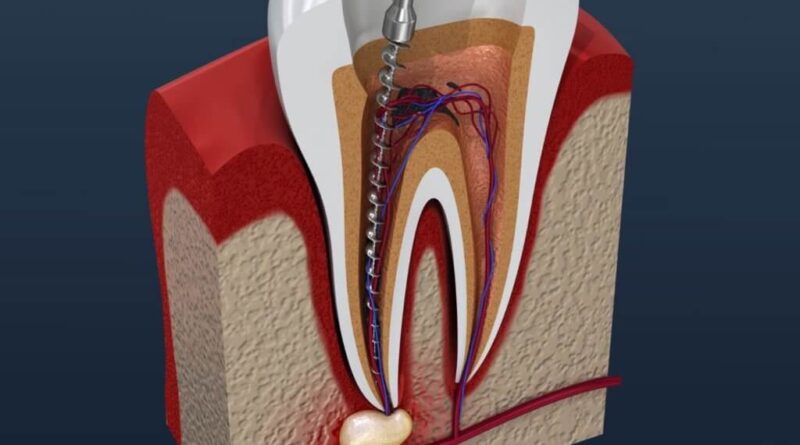How Long Does a Root Canal Last?
Root canals are a standard dental procedure to save a severely damaged or infected tooth from extraction. If you’re considering a root canal or have recently had one, you might be wondering how long the benefits of this treatment will last. In this comprehensive guide, we’ll delve into the longevity of root canals, what factors can influence their success, and provide you with essential information to make an informed decision about your dental health.
Understanding Root Canals
Before diving into root canal longevity, let’s first understand what a root canal procedure entails. A root canal is a dental treatment designed to remove infected or damaged pulp (the innermost part of the tooth) and seal the tooth to prevent further infection. This procedure is often necessary when a tooth’s pulp becomes inflamed or infected due to deep decay, cracks, or trauma.
The Root Canal Procedure
- Diagnosis: The first step is to diagnose the need for a root canal through clinical examination and possibly X-rays.
- Anesthesia: Local anesthesia is administered to ensure the patient is comfortable during the procedure.
- Cleaning: The dentist makes a small access hole in the tooth, removes the infected pulp, and cleans the interior of the tooth.
- Sealing: After cleaning, the tooth is sealed with a filling material, and a crown may be placed to protect and strengthen it.
Now that we understand the procedure, let’s explore the longevity of a root canal.
How Long Does a Root Canal Last?
The longevity of a root canal is a common concern for patients. Many wonder if the procedure’s benefits are temporary or if it provides a long-lasting solution. The good news is that a well-performed root canal can last a lifetime. However, several factors can influence the success and durability of the treatment.
Factors Affecting the Longevity of a Root Canal
- Tooth Condition: The overall health and condition of the treated tooth play a crucial role. If the tooth was severely damaged or compromised before the root canal, its longevity may be reduced.
- Dentist’s Expertise: The skill and expertise of the dentist performing the root canal are significant factors. A skilled dentist is more likely to achieve a successful and long-lasting procedure.
- Restoration: The type of restoration used after the root canal can impact its longevity. A well-fitted crown can protect the tooth effectively.
- Oral Hygiene: Maintaining good oral hygiene practices is essential. Brushing, flossing, and regular dental check-ups can help prolong the life of a root canal.
- Patient’s Habits: Habits such as teeth grinding or chewing on complex objects can stress the treated tooth and reduce its lifespan.
Signs of a Successful Root Canal
To determine if your root canal has been successful and is likely to last, watch for the following signs:
- Pain Relief: Immediate relief from the pain or discomfort that led to the root canal is a positive sign.
- No Infection: The absence of swelling, pus, or signs of infection in the treated area is a good indicator.
- Functional Tooth: The treated tooth should function like your natural teeth.
FAQ: Frequently Asked Questions
Here are some common questions related to root canals, along with detailed answers:
1. How long does a root canal procedure take?
The duration of a root canal procedure depends on various factors, including the tooth’s location and complexity. On average, it takes about 1 to 2 hours.
2. Is a root canal a painful procedure?
No, root canals are not painful. Dentists use local anesthesia to numb the area, ensuring patients are comfortable throughout the procedure.
3. Can a tooth with a root canal get infected again?
While rare, reinfection can occur if the tooth is not sealed correctly or new issues develop. Regular dental check-ups can help detect and address any potential problems.
4. How soon can I eat after a root canal?
You can usually eat soft foods immediately after a root canal. However, it’s advisable to avoid chewing on the treated tooth until a permanent restoration, such as a crown, is placed.
5. Are there alternatives to a root canal?
Alternative treatments include tooth extraction or no cure, but these options may lead to more significant dental issues and should be considered carefully.
6. Is a crown necessary after a root canal?
A crown is often recommended after a root canal to protect and strengthen the tooth. Your dentist will assess your specific situation and make a recommendation.
7. How can I care for my tooth after a root canal?
Maintaining good oral hygiene practices, including regular brushing and flossing, is essential. Follow your dentist’s recommendations for post-treatment care.
8. Can a root canal fail, and what are the signs?
Root canals can fail in rare cases. Signs of failure may include persistent pain, swelling, or infection in the treated tooth. If you experience these symptoms, contact your dentist promptly.
Conclusion
In conclusion, a well-done root canal can provide long-lasting relief from pain and save your natural tooth. The longevity of a root canal depends on various factors, including the tooth’s condition, the dentist’s expertise, and your oral hygiene habits. By following post-treatment care instructions and maintaining good oral health, you can maximize the chances of your root canal lasting a lifetime.
If you have any concerns or questions about root canals, don’t hesitate to consult with your dentist. They can provide personalized guidance based on your specific dental needs. Investing in your dental health today can lead to a brighter and healthier smile for years.




